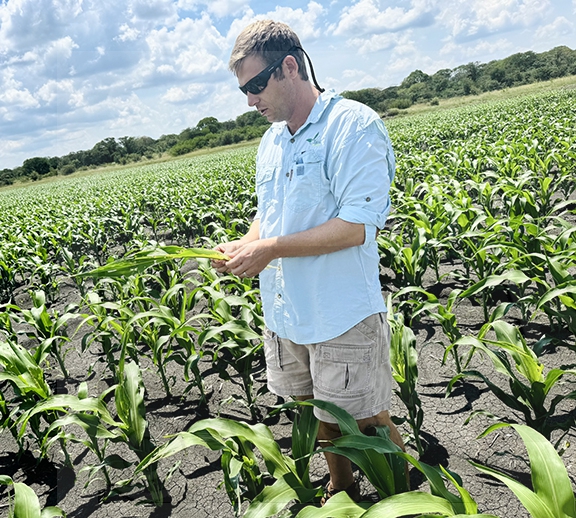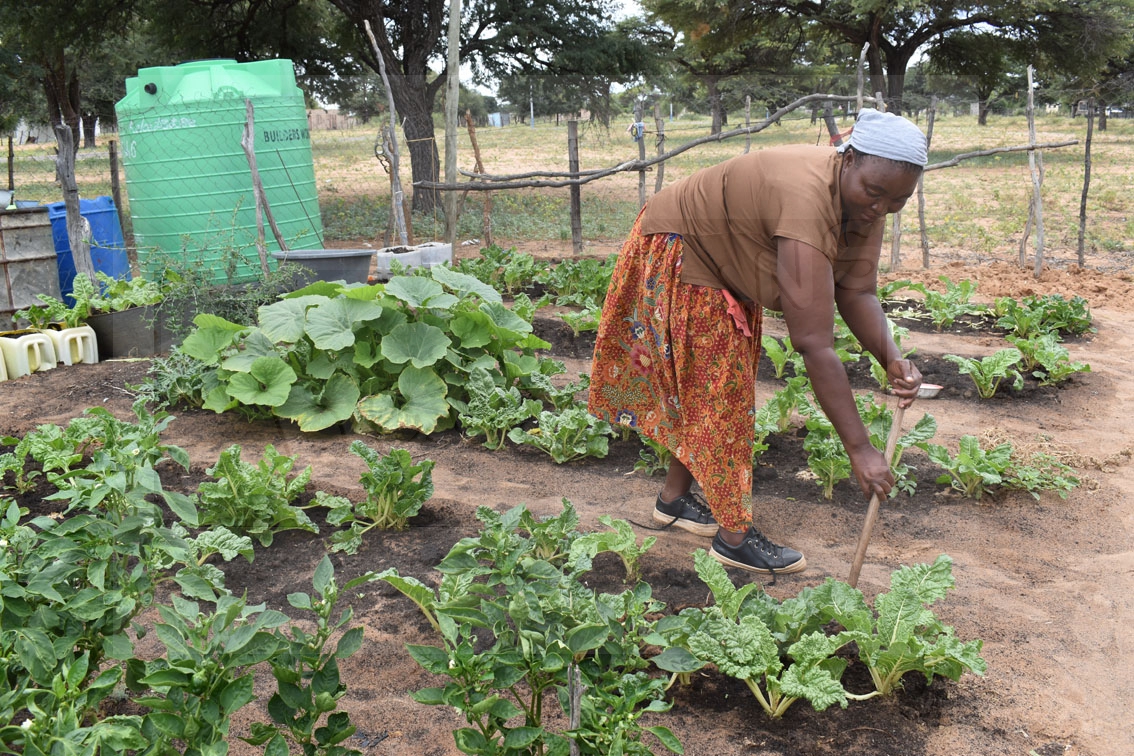Utilise Maja A Ikgorosa - Gare
25 Sep 2024
Farmers intending to sell between one and 100 cattle per feeding cycle to the Botswana Meat Commission (BMC) , either as individual farmers, clusters or cooperatives and qualify for European Union (EU) market, have been advised to apply for the Maja-A-Ikgorosa cattle feeding scheme to realise better price and improved margins.
Minister of Entrepreneurship, Mr Karabo Gare said this during the launch of the Maja-A-Ikgorosa cattle feeding scheme in Kang on September 24.
The Maja-A-Ikgorosa cattle feeding scheme, whose objectives are multi-pronged, is mainly, meant to liberate small-medium scale farmers from challenges of secondary-production as well as ensure their economic inclusion through direct-selling to the market.
“Our solemn conviction as a government is to ensure that farmers are assisted with enabling resources, which would amply prepare them to gain direct-selling to the market in order to realise optimal price on sale of their stock.The scheme again demonstrates the ‘One-Gov’ principle, through a collaborative framework, piecing together four state-owned entities under its portfolio, being BMC as the final receiver of fed cattle, with support from the Botswana Agricultural Marketing Board (BAMB), the Citizen Entrepreneurial Development Agency (CEDA), the Local Enterprise Authority (LEA) and enlisting critical expertise from the Department of Veterinary Services (DVS) ,” he said.
“These entities will advance loan applicants, assist small-medium scale farmers, with resources such as infrastructure-development funding through CEDA, feed and veterinary services support through BAMB, business advisory training through LEA and conversion or registration of their small-holdings into EU eligibility through DVS,” he said.
He also shared that the scheme would also broaden its facilitatory services to include or co-opt other government entities in future.
“The impact and inclusion imagined is very huge, as most of these small-medium scale farmers are the critical mass, who own up to 80 per cent of cattle in Botswana,” he said.
Mr Gare further noted that, Maja-A-Ikgorosa scheme would be rolled out to other areas, adding that it would first be implemented as Phase 1, with cattle habitable zones that already qualify or are eligible for supply to the EU market, commonly referred to as the Green Zone.
“With other remaining cattle habitable zones, with disease endemic status or Non-EU, the ministry will expedite a determinable price discovery possible as well as prioritise access of the Red Zone products to the United Arab Emirates (UAE) market so as to replicate the Maja-A-Ikgorosa scheme into those zones as Phase II, within the short-medium term,” he said.
He emphasised that feeding cattle only made economic sense when one was feeding for a market that paid premium prices.
“Notwithstanding this, it remains our commitment to again achieve access of the Red or non-EU Zones into the UAE, but also deploy other risk-mitigation policies that can convince our trading-countries that products even sourced from disease endemic zones in Botswana are still a premium product,” he said.
Mr Gare further stated that, given the allegiance achieved through recent efforts of diplomacy, he was optimistic that Botswana would get a reassuring access into these territories or markets.
Giving an overview of the Maja-A-Ikgorosa Relief Programme, the BMC chief executive officer, Mr David Tsheboeng, said government’s mandate was to help farmers to unearth ample opportunities in livestock farming, and other agro-based value-chains, adding that the commission was ready to implement the programme.
In her welcome remarks, Kgosi Basadi Seipone thanked President Dr Mokgweetsi Masisi for the initiative, and coming up with measures that would alleviate poverty.
She shared that her district relied predominantly on cattle farming, adding that she was optimistic that the programme would contribute significantly to the country’s Gross Domestic Product (GDP).
Kgosi Seipone, however, lamented challenges facing farmers in Kgalagadi as a result of wildlife predation. She pleaded with government to consider erecting a predator fence at the farms.
She also suggested development of ranches where farmers could keep their livestock protecting them from wildlife, adding that this would go a long way in to improving production. Ends
Source : BOPA
Author : Thuso Kgakatsi
Location : KANG
Event : Programme Launch
Date : 25 Sep 2024






